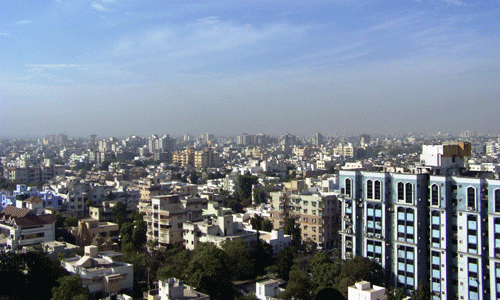 Track2Realty Exclusive: Some analysts maintain that the government needs to understand that in order to meet the infra needs we are left with no option but to transform the city.
Track2Realty Exclusive: Some analysts maintain that the government needs to understand that in order to meet the infra needs we are left with no option but to transform the city.
Recommending for new development plan needs to be finalised with incentive for cluster development, Sunny Bijlani, Director, Supreme Infrastructure says across the South Asian countries like Singapore and Dubai the FSI is ranging around 5 to 15, whereas in an island city like Mumbai it has been 1.03 and now close to 2.
Vertical development will solve many problems of roads, infra, parking in a city like Mumbai which has got least per capita open space.
“While redevelopment is the only way forward, it needs investment and policies have to be framed in a manner so that blackmailing by a few members won’t create a roadblock. Even if 90 per cent of the members are convinced, it creates a problem if 10 per cent try to arm twist knowing fully well that going to court and evicting them out is a lengthy process and that escalates the cost of the developer. What is urgently needed is fast track clearances. Divide the given zone of a city into four-five sub-zones and take up redevelopment as a cluster of societies with additional FSI subject to the condition of improving infrastructure. Incentivise cluster development,” says Bijlani.
Pranay Vakil, former Chairman of Knight Frank agrees that arm twisting by a few, howsoever small group they may be, is the reason what deters the large developers and investment into redevelopment projects.
“Even if more than 90 per cent are willing for the redevelopment, a few vested interests can be game spoiler. And I feel it is here that the role of state machinery has to be pro-active and not populist. The decision making process can be democratic, but not the implementation. State must be a party to make sure the redevelopment plan is implemented in an authoritarian manner,” says Vakil.
In the last few years, cities going for redevelopment of posh localities have seen more resistances than even slums and many developers believe a handful of vested interests with the wrong psyche are hurdles in road to urban makeover.
Experts believe if the government really wants to take the redevelopment on a priority, then master plan itself should be developed to facilitate redevelopment. Societies must be given deadline to choose developer through fair bidding, along with incentives so that societies opt for it in a democratic manner. Increase in supply will also make housing reasonably affordable within the city instead of adding to more suburb sprawls.
Redevelopment fits into scheme of things well only with overall planned development and it seems majority in the city have made up their mind for urban makeover. With Mumbai taking a lead, experts believe if it emerges as a case study then old cities like Kolkata, Old Delhi and the rest of the India can follow the model. Some of the cities have a date with future to stand out as a case study in urban redevelopment for the rest of the country.





